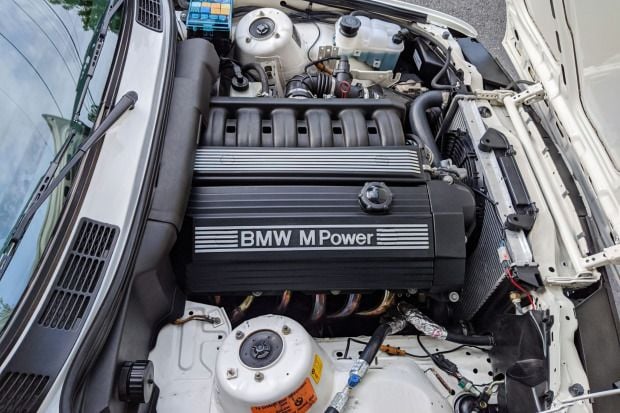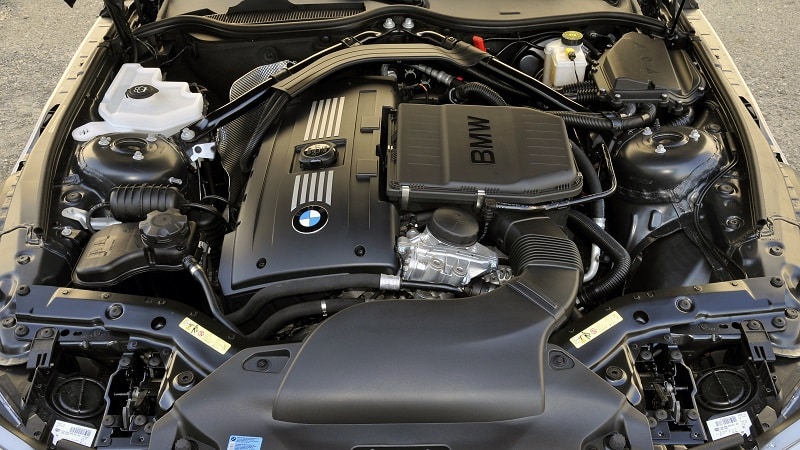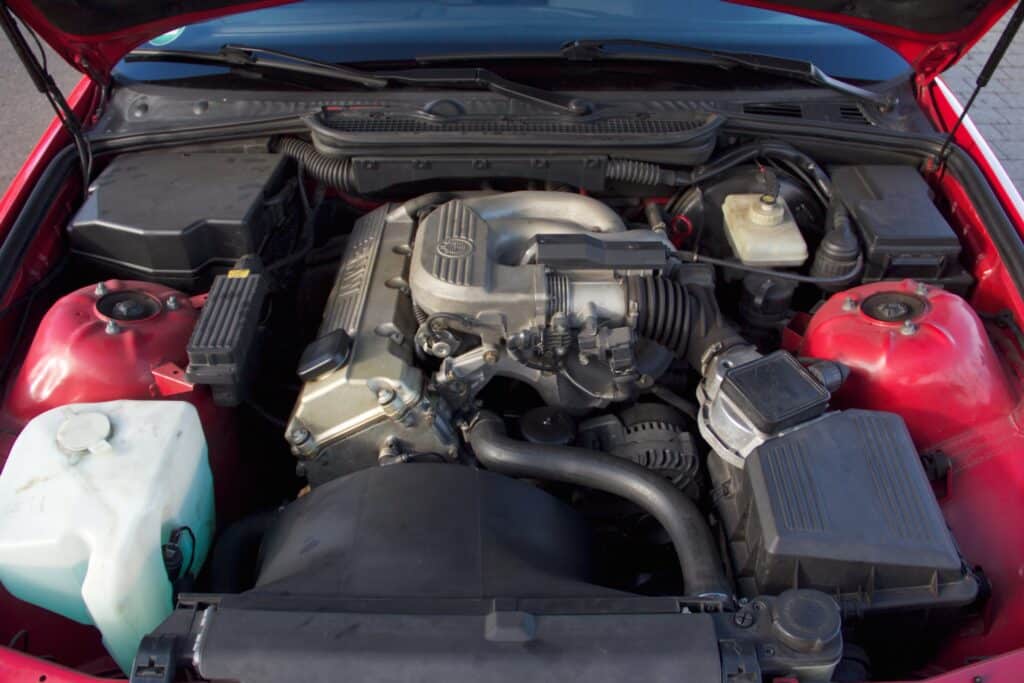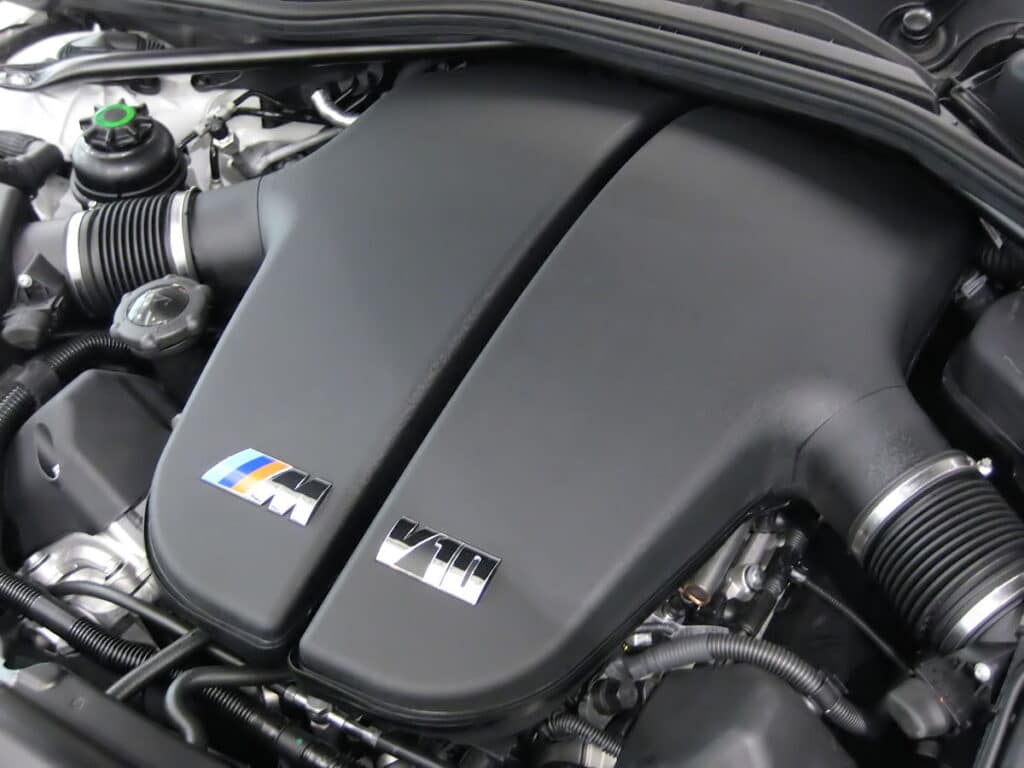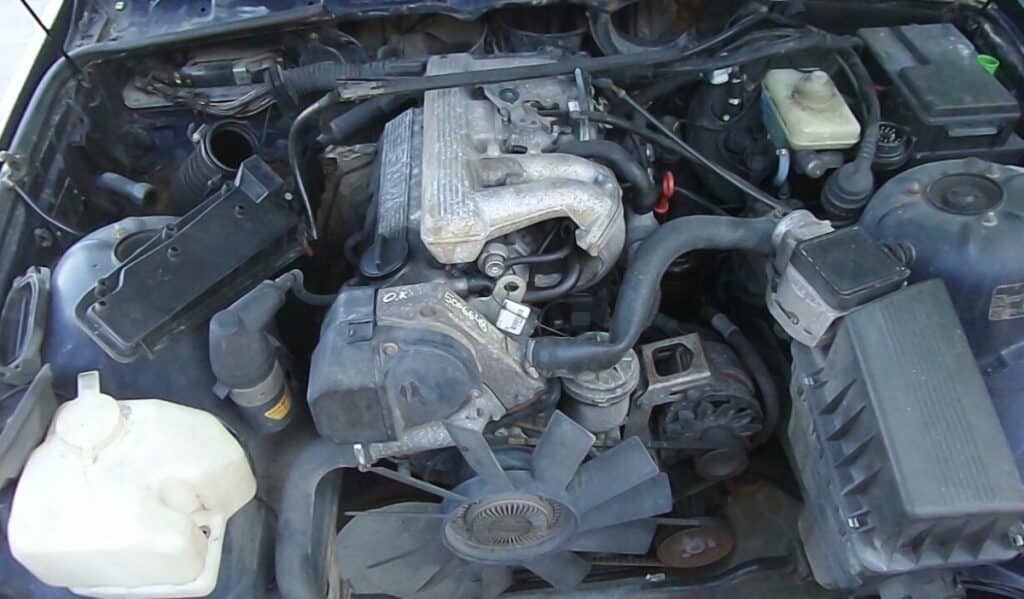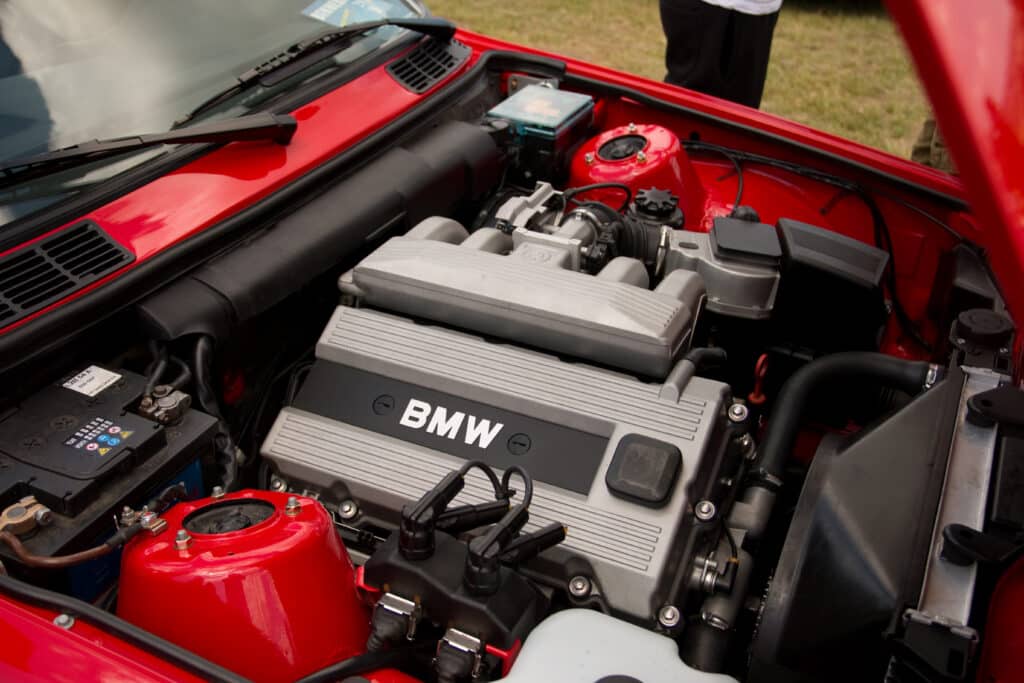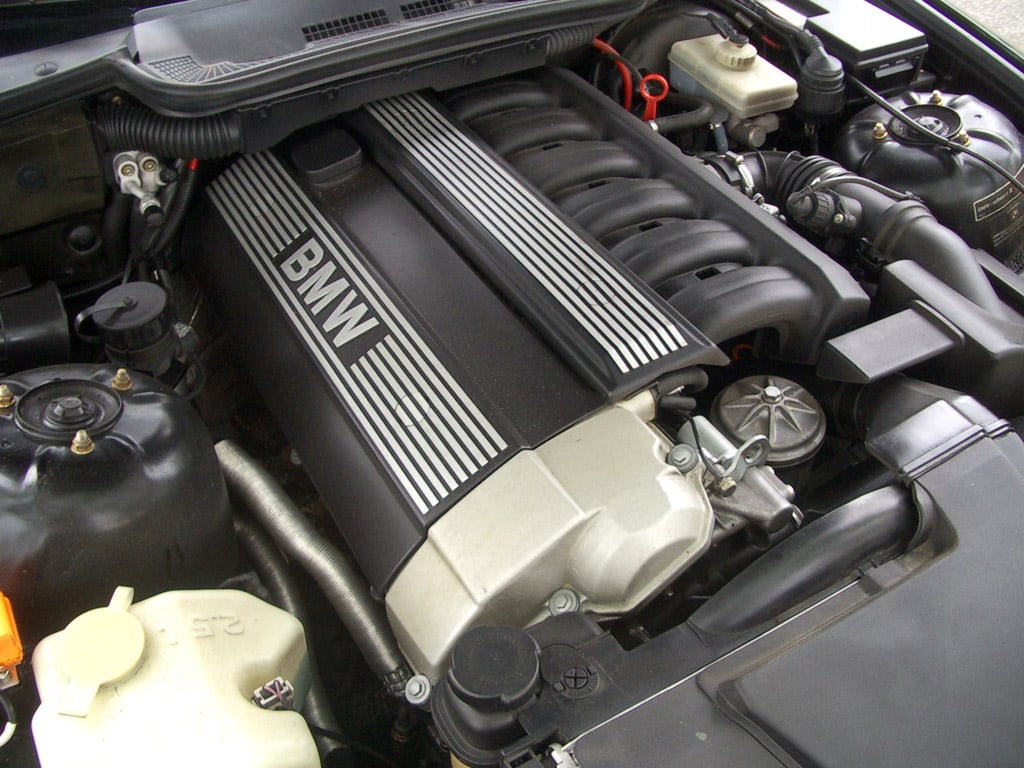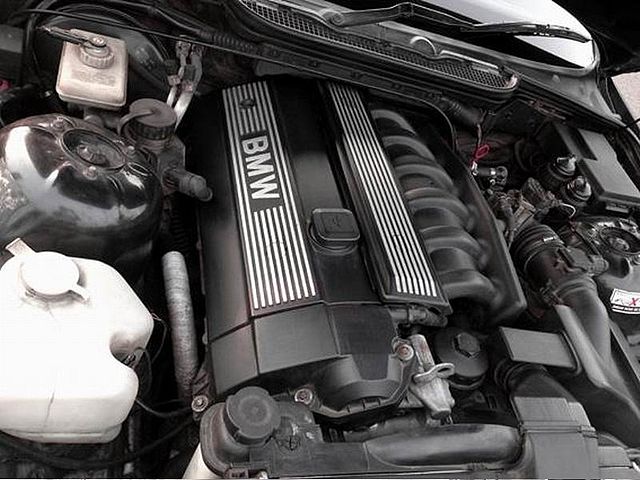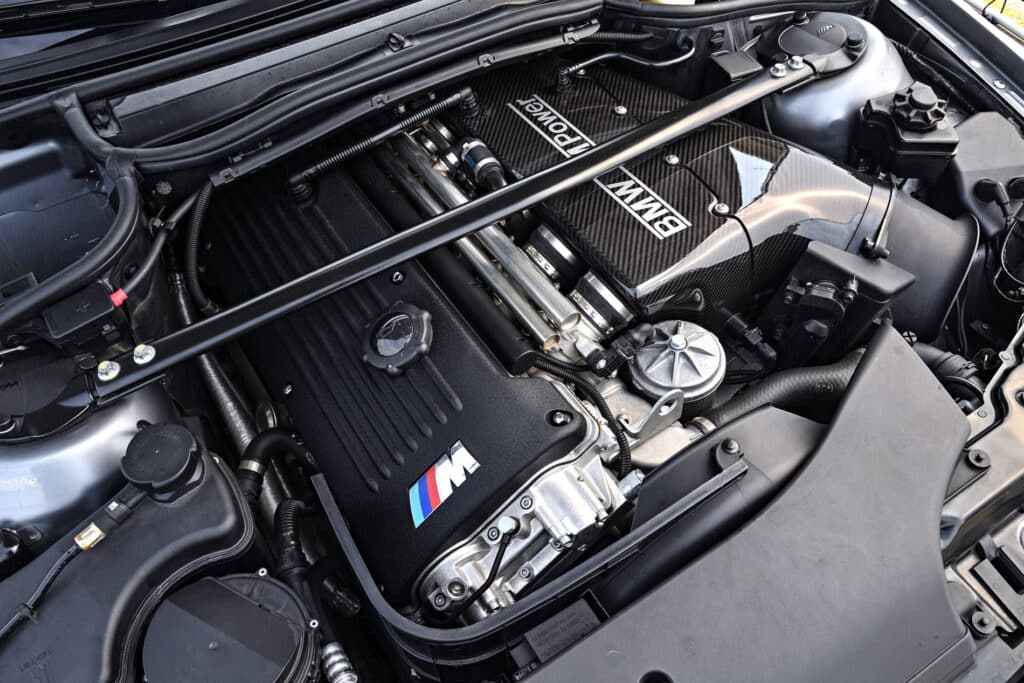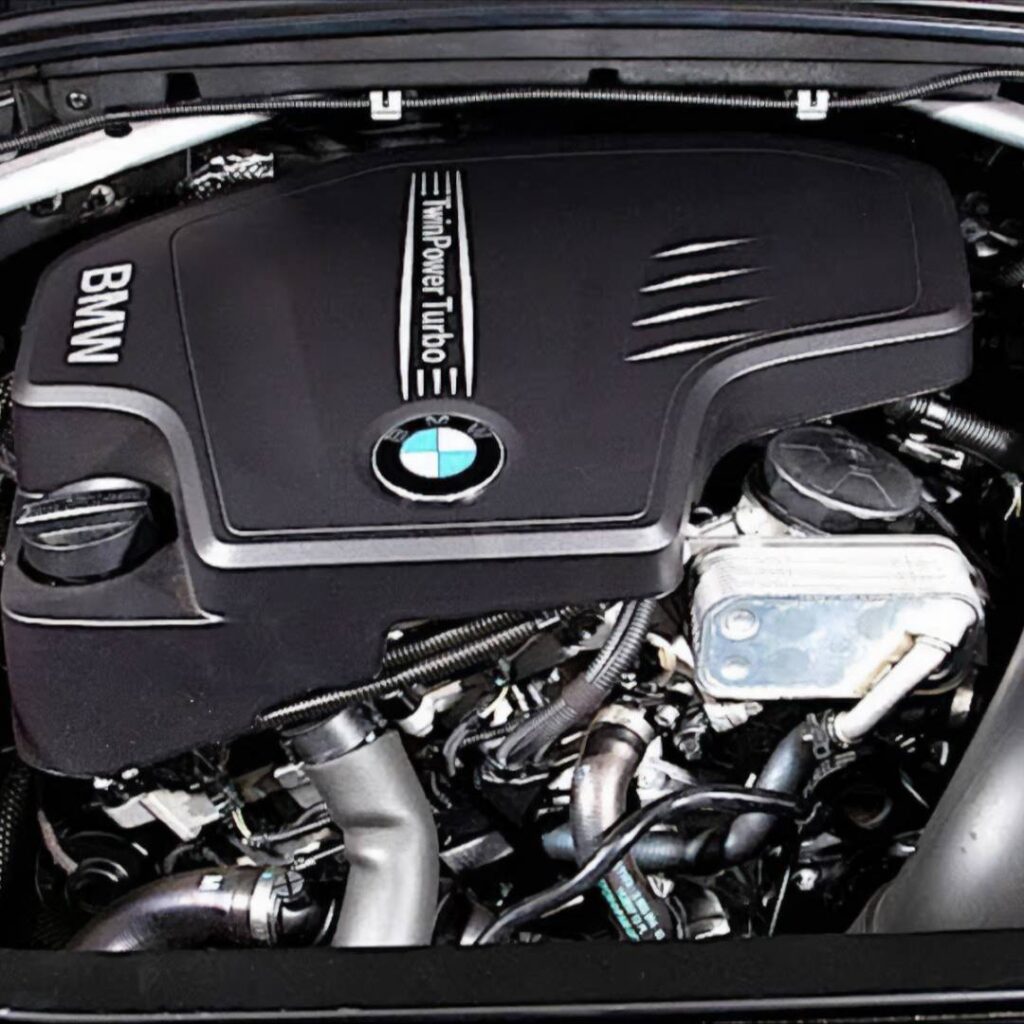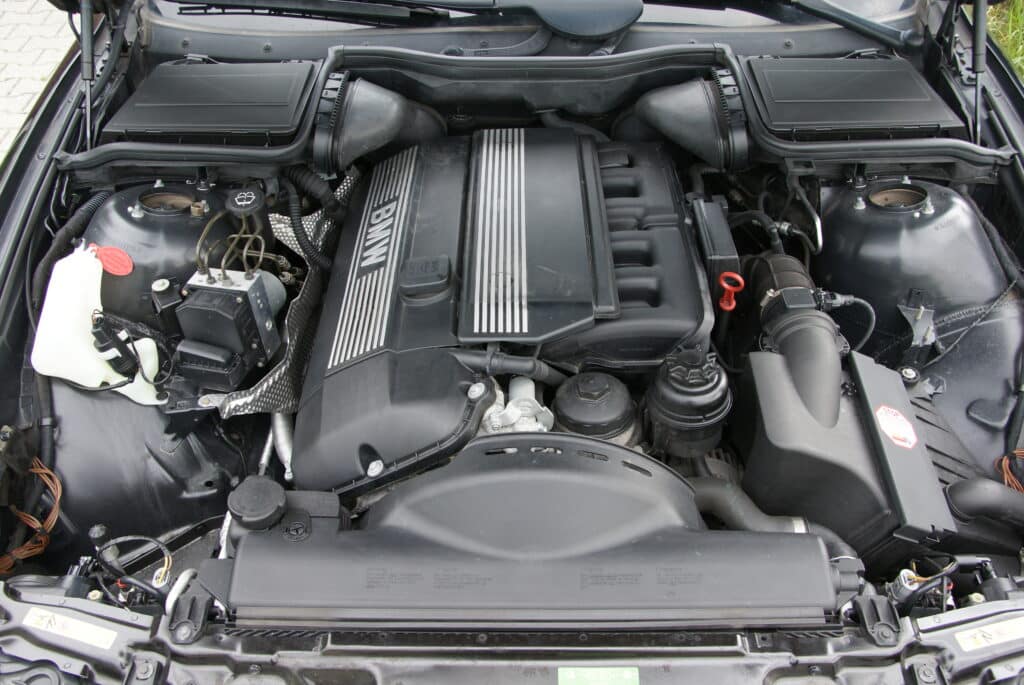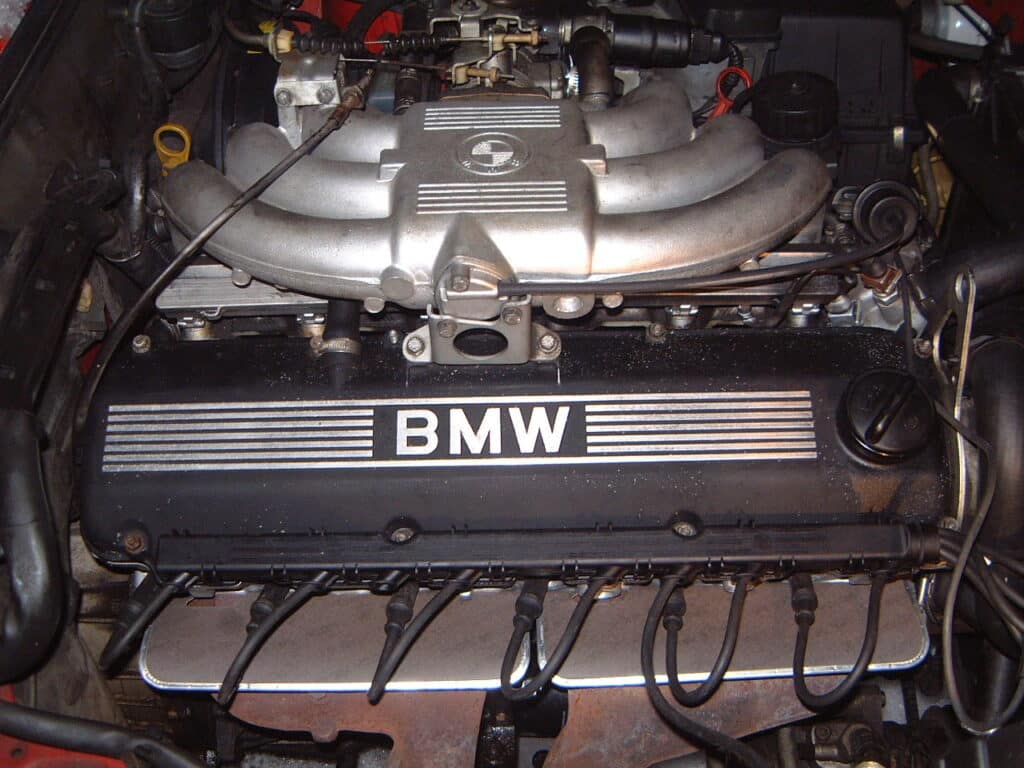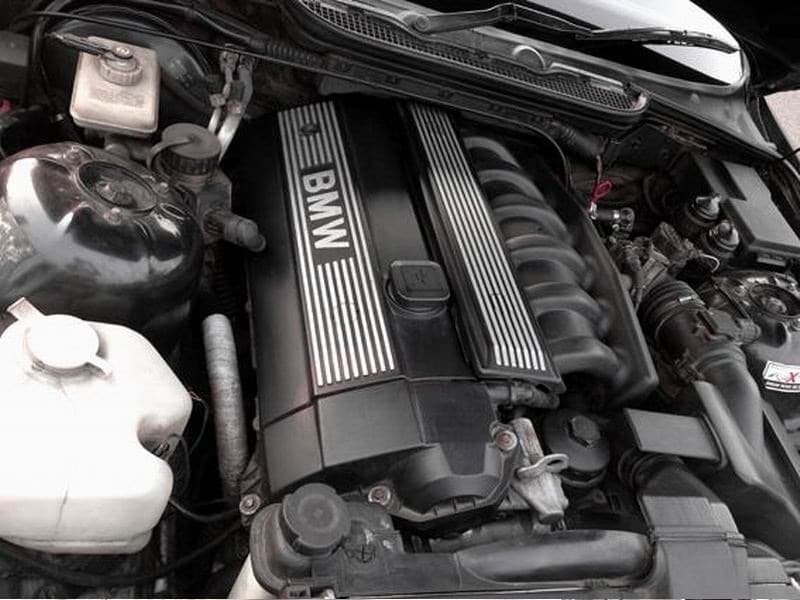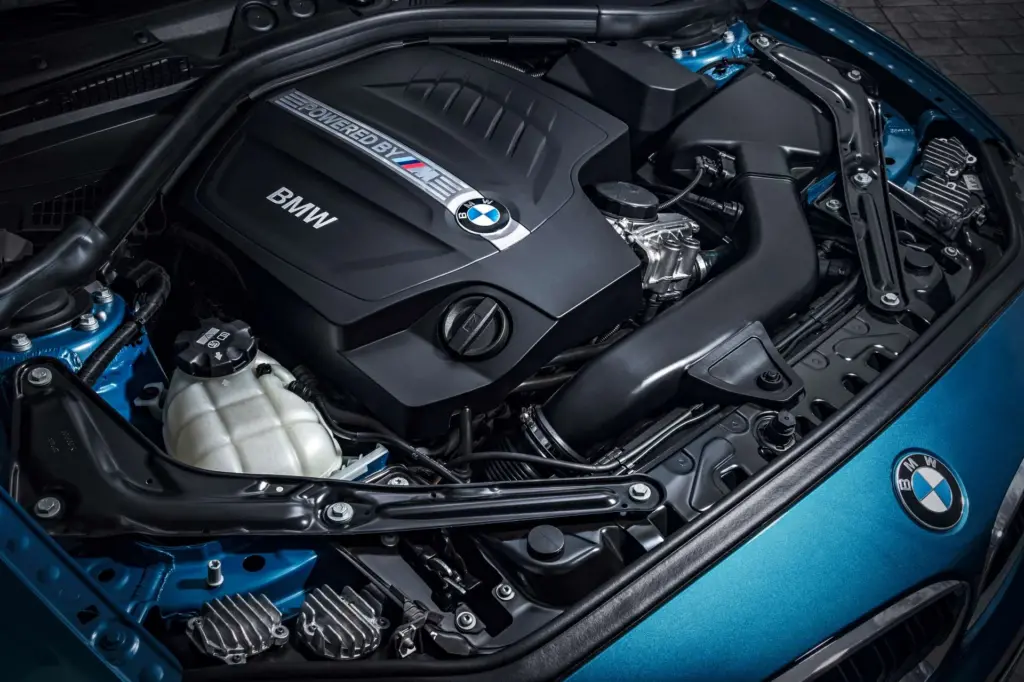The BMW M44B19 engine represents a notable chapter in BMW’s engineering history. Introduced in the mid-1990s, the M44 was a progression from the earlier M42, marking BMW’s continuous evolution in four-cylinder engine design. With a displacement of 1.9 liters, this engine was part of BMW’s commitment to efficiency and performance in a compact package.
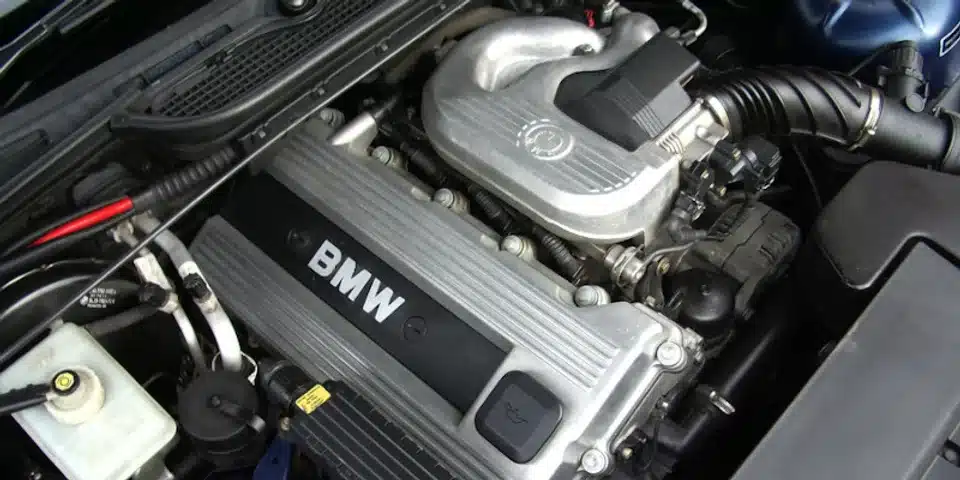
Used in models such as the 318iS and the Z3, the M44B19 was BMW’s response to the demands of a market leaning towards smaller, more economical yet still spirited engines. It encapsulated BMW’s engineering prowess of the era, leveraging advancements in materials and electronics to enhance performance and reliability.
The M44B19 stood as a bridge between the raw driving machines of the past and the technology-focused future, marking its significance in BMW’s storied automotive history.
BMW M44B19 Engine Specs
The BMW M44B19 engine, a refinement of its predecessor the M42B18, stands as a testament to BMW’s dedication to engineering excellence. Launched in 1996, the M44B19 was BMW’s move to update the 4-cylinder segment with more power and enhanced efficiency.
Here’s a detailed look at its specifications:
| Specification | Detail |
|---|---|
| Displacement | 1.9 L (1895 cc/115.6 cu in) |
| Configuration | Inline-4 |
| Bore x Stroke | 85 mm x 83.5 mm |
| Block Material | Cast Iron |
| Head Material | Aluminum |
| Valvetrain | DOHC with 4 Valves per Cylinder |
| Compression Ratio | 10.0:1 |
| Power Output | 138 bhp (103 kW) at 6000 rpm |
| Torque | 133 lb-ft (180 N·m) at 4300 rpm |
The M44 engine boasted a cast-iron block and an aluminum head, which provided a sturdy yet lightweight structure. Its valvetrain featured double overhead camshafts (DOHC) and four valves per cylinder—innovations that allowed for better airflow and more vigorous combustion.
The increase in stroke over the M42, up to 83.5mm, and a compression ratio of 10.0:1 meant that the M44 could offer more torque and power across a wide RPM range without sacrificing the signature smoothness of BMW’s engines.
This powertrain was controlled by the Bosch Motronic 5.2 engine management system, which meticulously managed fuel delivery and ignition timing, ensuring the M44B19 delivered performance efficiently.
The M44B19 served as a powerful yet fuel-efficient engine option within the 318is and Z3 models, particularly catering to the US market’s demand for a balance between performance and economy. This engine’s legacy continued until it was succeeded by the N42B20 in 2001, marking the end of its production but not its reputation for reliability and spirited driving dynamics.
Performance Characteristics
The BMW M44B19 engine, recognized for its balance of efficiency and performance, delivers a peak horsepower of 138 bhp at 6000 rpm and a maximum torque of 133 lb-ft at 4300 rpm. Its performance is characterized by a broad, usable RPM range that provides consistent power delivery, enhancing the driving experience with a responsive throttle and steady acceleration.
The engine’s behavior is one of smoothness and precision, a hallmark of BMW’s engineering philosophy. It revs eagerly to its 6500 rpm limit, where the power band is situated in the mid to high range, making it ideal for spirited driving without compromising low-end tractability for city driving.
At the heart of the M44B19’s performance is the advanced Bosch Motronic 5.2 engine management system. This sophisticated system meticulously controls fuel injection and ignition timing, optimizing engine efficiency and responsiveness.
It also plays a pivotal role in diagnostics and engine protection, adjusting parameters in real-time to maintain optimal performance under varying driving conditions and to prevent damage from engine knock or poor-quality fuel.
The Motronic system’s adaptability also means that the M44B19 can accommodate various modifications and tuning efforts, allowing enthusiasts to extract more power or refine the engine’s characteristics to suit personal driving styles.
BMW enthusiasts can rely on the M44B19 for smooth power delivery, whether cruising or in high-speed situations.
Fuel Consumption
The BMW M44B19 engine, with its 1.9-liter capacity, is engineered for a blend of performance and fuel economy. While the average fuel consumption rates for specific models may vary, drivers can generally expect a range of fuel efficiency that could align with comparable engines of its era, often seen in the ballpark of mid to high 20s MPG on combined cycles.
The fuel consumption of the BMW M44B19 engine varies depending on the driving conditions. The fuel consumption for the BMW 318is E36 model equipped with the M44B19 engine is reported to be 11.0 L/100 km in the city, 6.1 L/100 km on the highway, and 8.0 L/100 km combined.
Fuel efficiency is influenced by a myriad of factors, including but not limited to driving habits, vehicle maintenance, environmental conditions, and the quality of fuel used. Aggressive driving, for instance, will increase consumption, as will carrying excessive weight or using the vehicle in areas with steep terrain or dense traffic conditions.
On the other hand, regular maintenance such as ensuring proper tire inflation, timely oil changes, and ensuring the engine is running with optimal timing can help maintain or even improve fuel efficiency.
Advancements in the engine management system, like the Bosch Motronic system in the M44B19, also contribute significantly to fuel economy by precisely controlling fuel injection and ignition timing. However, external factors such as air temperature and quality can also play a role; colder air is denser, leading to higher fuel consumption, while warmer air can have the opposite effect.
Maintaining the fuel injection system of an engine such as the M44B19 is crucial for optimizing fuel efficiency. This involves performing routine inspections and cleaning procedures for the fuel injectors, fuel filter, and air filter. Moreover, incorporating fuel additives to cleanse and safeguard the engine’s internal components can further enhance the engine’s efficiency and performance.
Oil Capacity and Type
When it comes to the M44B19 engine’s lubrication requirements, BMW recommends the use of fully synthetic oil that meets their Longlife-01 specification, commonly a 5W-30 or 5W-40, depending on the climate and operating conditions. This ensures optimal performance and longevity of the engine components.
The oil capacity for the M44B19 engine is approximately 4.5 liters (4.75 quarts) when including the filter. Regular oil changes are crucial for maintaining engine health, with intervals traditionally recommended at every 15,000 kilometers (approximately 9,320 miles) or once a year, whichever comes first.
However, many enthusiasts and mechanics advocate for more frequent oil changes, such as every 7,500 kilometers (around 4,660 miles), to ensure the engine is running on clean oil, particularly if the car is used for performance driving or operates in harsh conditions.
The M44B19 engine relies on proper oil maintenance for optimal performance and longevity. Adhering to manufacturer-recommended oil change intervals and using the correct viscosity grade are critical steps. Additionally, monitoring oil levels and conditions between changes can reveal problems like leaks or high consumption before serious damage occurs.
With proactive oil servicing and vigilance, owners can help this engine achieve a long and trouble-free life.
Cooling System
For the BMW M44B19 engine, maintaining an effective cooling system is critical for performance and longevity. BMW typically recommends a 50/50 mix of antifreeze and distilled water, using a coolant that meets their specific requirements, often referred to as BMW Longlife coolant.
The cooling system capacity for the M44B19 engine is approximately 6.5 liters (6.9 quarts), but it’s always advised to consult the vehicle’s manual or a professional for the exact volume.
Coolant should be replaced every 2 to 3 years, or as specified in the owner’s manual, to ensure the system remains free of contaminants and the coolant retains its anti-corrosive properties.
During replacement, a full system flush is recommended to remove any old coolant and debris, preventing potential blockages and ensuring efficient cooling.
Regular checks of the coolant level and condition should be part of routine maintenance, especially before long trips or during seasonal changes. If the coolant appears murky or has particles floating in it, it may indicate a need for a system flush even if the replacement interval has not been reached.
Additionally, the cooling system’s hoses, radiator, and thermostat should be inspected for signs of wear or leaks and repaired as necessary to maintain the system’s integrity.
Timing System
The BMW M44B19 engine is equipped with a timing chain, which is favored for its durability and longevity compared to timing belts. Timing chains are designed to last the lifetime of the engine, but they are not immune to wear and tear.
It’s important for owners to be aware of the signs of a timing chain that may need attention, such as unusual engine noises or a check engine light indicating timing issues.
Unlike timing belts, there isn’t a universally recommended replacement interval for timing chains, but it’s wise to have them inspected regularly, especially after the 100,000-mile mark. Any signs of significant wear, such as stretched chain links, damaged teeth on the sprockets, or failed tensioners, warrant immediate attention.
A full inspection of the timing chain should be part of a major service. If replacement is necessary, it’s often recommended to change associated components like the chain tensioner, guide rails, and sprockets at the same time.
This preemptive approach can prevent future failures and maintain engine synchronization, ensuring the valves and pistons operate in harmony, critical for the performance and longevity of the M44B19 engine.
If the timing chain fails while the engine is running, it can lead to severe engine damage, including bent valves, damaged pistons, and cylinder head or engine block damage, due to its interference design.
Therefore, it’s crucial not to ignore timing chain maintenance, even though it doesn’t have a specific replacement interval like a timing belt.
Regular oil changes and using the correct oil type can also prolong the life of the timing chain, as proper lubrication is essential for reducing wear. Owners should also listen for a rattling noise from the front of the engine, particularly on cold starts, which can indicate a timing chain issue.
Engine Firing Order and Cylinder Layout
The BMW M44B19 engine’s firing order is integral to its performance, dictating the sequence in which the spark plugs ignite and the pistons fire. This firing order, 1-3-4-2, is carefully engineered to balance the engine, reducing vibration and ensuring smooth operation.
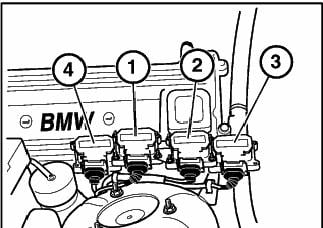
By alternating the firing between cylinders on opposite ends of the engine, BMW’s design minimizes the stress on the crankshaft, leading to better balance and less rotational vibration.
A well-ordered firing sequence also contributes to even power distribution and efficient exhaust emissions control. The spacing out of combustion events allows for consistent power output and reduces the likelihood of engine knock, which can occur if multiple cylinders fire in rapid succession, leading to pressure build-up.
Additionally, a harmonious firing order aids in the thermal management of the engine by evenly distributing heat, reducing the risk of overheating in any one cylinder.
This firing order is not only about operational stability; it also impacts the engine’s acoustic characteristics. The unique sound of a BMW engine is partly due to its firing order, which can affect the exhaust note and engine sound—attributes that are often key selling points for automotive enthusiasts.
For the M44B19, the precise firing order is maintained by a well-calibrated engine management system, which controls the timing of spark plug ignition and fuel injection. This ensures optimal combustion conditions and helps the engine to respond quickly to throttle changes, providing a smooth and responsive driving experience.
Spark Plugs and Ignition System
The BMW M44B19 engine utilizes a sophisticated ignition system that is essential for its smooth operation and performance. The system’s core components are the spark plugs, which are meticulously engineered to ignite the air-fuel mixture within the cylinders.
For the M44B19, BMW recommends high-quality spark plugs that are capable of enduring the engine’s high-performance demands.
The proper spark plug gap setting is crucial for the M44B19 engine. It is typically set between 0.7 mm to 0.9 mm. This precise gap size ensures that the spark plugs produce a spark with the optimal strength to ignite the fuel mixture efficiently. If the gap is too small, the spark may be too weak, leading to incomplete combustion.
Conversely, if the gap is too wide, the ignition system may struggle to generate a spark powerful enough to cross the gap, which can lead to misfires and poor engine performance.
Changing the spark plugs at recommended intervals is vital for maintaining the engine’s health and performance. Worn or improperly gapped spark plugs can cause various issues, including a drop in power output, reduced fuel efficiency, and increased emissions.
Regular checks and replacements will ensure that the ignition system functions correctly, providing the driver with the performance and reliability expected from a BMW engine.
BMW M44B19 Engine Problems
The BMW M44B19 engine, while known for its robustness, does present some common issues that owners should be aware of. These include the VANOS unit failures, which can lead to loss of power and poor idle due to the variable valve timing system’s wear.
Additionally, the engine is susceptible to cooling system problems, with the plastic components like the radiator end-tank and water pump impeller being prone to failure.
Other known issues include vacuum leaks from aging hoses and gaskets, which can cause erratic idling and reduced performance. The mass airflow sensor (MAF) can become dirty or fail, resulting in incorrect air/fuel mixtures and a decrease in fuel efficiency. Ignition system faults, particularly failing ignition coils or worn spark plugs, can lead to misfires and rough running conditions.
To troubleshoot these common problems, a systematic diagnostic approach is recommended. This involves checking the VANOS system for signs of wear or failure, inspecting cooling system components for leaks or damage, and testing vacuum lines for integrity. Cleaning the MAF sensor and checking the ignition system components can also address some performance issues.
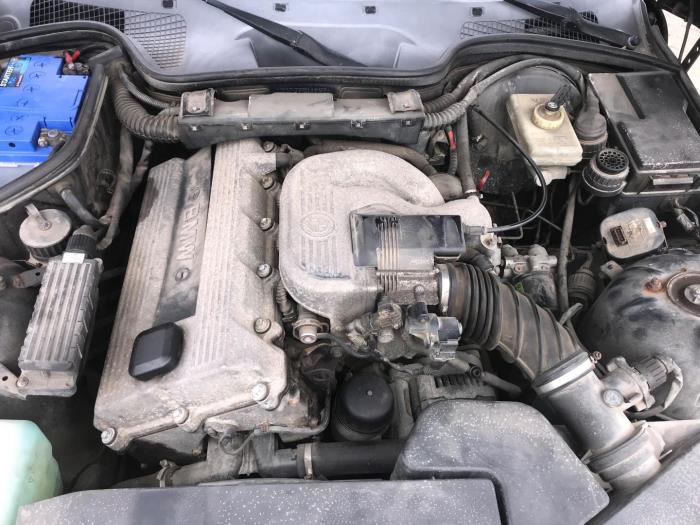
Regular maintenance and timely replacement of worn items like hoses, gaskets, and spark plugs can prevent many of the common issues. For more severe concerns, like VANOS failure or cooling system breakdowns, professional assessment and repair are advisable to ensure the engine operates reliably.
Common Problems and Solutions
The BMW M44B19 engine is known for its reliability, but like any mechanical component, it has its share of issues. Common problems with this engine include:
- VANOS System Failures: The VANOS system can wear over time, leading to decreased engine performance and a rough idle. VANOS seals and solenoids should be inspected and replaced as needed.
- Cooling System Problems: The cooling system’s plastic components can fail, such as the water pump impeller and radiator end-tank, causing overheating. Regular inspection and maintenance of the cooling system are crucial.
- Sensor and Electrical Issues: Oxygen sensors and the mass airflow sensor (MAF) can fail, affecting the fuel mixture and engine efficiency. Regular diagnostic checks can help identify these issues early.
- Oil Leaks: Common areas for oil leaks include the valve cover gasket and oil filter housing gasket. Replacing these gaskets can prevent further leaks.
- Ignition System Failures: Worn spark plugs or failing ignition coils can cause misfires. Regular replacement of spark plugs and coils can avoid this problem.
FAQs
Q: What is the typical lifespan of the M44B19 engine? A: With proper maintenance, the M44B19 engine can last beyond 200,000 miles. Regular oil changes and adherence to BMW’s service intervals are key to achieving this longevity.
Q: Can the M44B19 engine’s performance be easily upgraded? A: Yes, there are various aftermarket options available for increasing the performance, including ECU tuning, intake, and exhaust system upgrades.
Q: Are there any known recall issues for the M44B19 engine? A: No major recalls specifically targeting the M44B19 engine have been widely documented. However, staying updated with BMW service bulletins is advisable.
Q: What kind of oil is best for the M44B19 engine? A: BMW recommends synthetic oil meeting their specifications, commonly 5W-30 or 5W-40, for optimal performance and protection.
Q: Is the M44B19 engine prone to overheating? A: Overheating can occur, particularly if the cooling system is not maintained. Regular checks and replacement of components like the water pump and thermostat can mitigate this risk.
Q: How often should the timing chain be replaced on the M44B19 engine? A: The timing chain on the M44B19 engine is designed to last the life of the engine but should be inspected regularly for signs of wear.
Q: Does the M44B19 engine require premium gasoline? A: While premium gasoline is often recommended for optimal performance, the engine can run on regular unleaded, but with a potential decrease in performance and efficiency.

